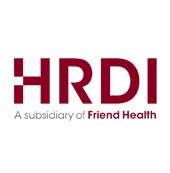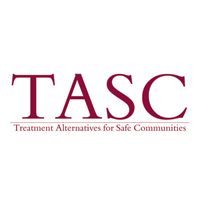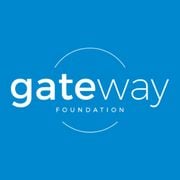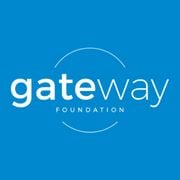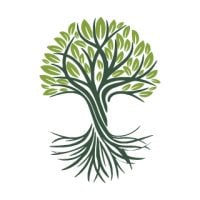Alternative Behavior Consultation
Drug Rehab Center in Chicago, Illinois
Alternative Behavior Consultation is an addiction treatment facility in Chicago that provides comprehensive care to individuals suffering from alcoholism and opioid addiction, offering specialized levels of care, evidence-based treatments, counseling sessions, group therapies, 12-step programs, holistic approaches, relapse prevention strategies, family therapy, and other supportive measures.
About This Illinois Facility
Alternative Behavior Consultation is an alcoholism and opioid addiction treatment facility located in Chicago, Illinois. Their primary focus is to help individuals suffering from alcoholism and opioid addiction find recovery and achieve sobriety. Their facility offers outpatient treatment, allowing individuals to receive care while continuing to live at home and maintain their daily responsibilities. They also provide aftercare support to help individuals successfully transition back into their communities after completing their treatment program.
At Alternative Behavior Consultation, individuals struggling with alcoholism and opioid addiction can benefit from a variety of services and treatment methods. One of the services they offer is individual counseling, providing a safe and confidential space for clients to explore the underlying causes of their addiction and develop coping mechanisms. Additionally, group therapy sessions are held to foster mutual support and healing among individuals who have experienced similar struggles. Alternative Behavior Consultation also offers educational programs and workshops to help individuals gain knowledge about addiction, relapse prevention, and the development of healthy coping strategies. Their multidisciplinary team of professionals works closely with each client to develop personalized treatment plans and provide ongoing support throughout their recovery journey.
Genders
Ages
Modality
Additional
Conditions and Issues Treated
Many people who struggle with opioid addiction need to attend specific programs like methadone , Suboxone or Vivitrol clinics.
These types of programs will provide the patient with legal, prescription medications that can help them overcome their cravings for illegal opioids like heroin or fentanyl . If the patient has a chronic condition like Hepatitis C, they must undergo treatment before they can begin taking these medications.
Levels of Care Offered at Alternative Behavior Consultation
This center offers a variety of custom treatment tailored to individual recovery. Currently available are Aftercare Support, Outpatient, with additional therapies available as listed below.
Outpatient treatment programs provide drug and alcohol addiction treatment through individual sessions with a counselor, group therapy, 12-step meetings, and other activities to help individuals gain sober living skills. Most programs are designed for those individuals who have completed a medically supervised detoxification program and provide opportunities for clients to begin the process of early recovery.
Outpatient programs also offer a level of medical support as needed and psychological backing through therapy. Clients are encouraged to live at home, though there may be some flexibility regarding this requirement based on the circumstances and needs of each patient.
Outpatient treatment is perhaps the most common type of dual diagnosis program available. It does not pose a significant financial burden on patients. However, it is essential to note that outpatient treatment does not provide the support and supervision given in residential programs. Some addicts may need this level of support to maintain their sobriety.
People who have completed a rehab program often need continued support from the addiction treatment team in order to remain abstinent from drugs and alcohol. Aftercare can be beneficial for personal, social, and emotional growth.
Common aftercare options include:
- Individual Therapy – this type of addiction counseling is available on a one-on-one basis. This can be beneficial for people with a high degree of emotional turmoil and a strong desire to overcome addiction.
- Group Therapy – this type of addiction counseling is available in a group setting. This type of treatment can be beneficial for people who are unable to attend regular therapy appointments due to other responsibilities.
- Family Therapy – this type of addiction counseling is available to the family members of addicts. This can be beneficial for people who are unable to fully comprehend what their loved ones are experiencing due to addiction.
Therapies & Programs
Therapy sessions focused on the individual addict can provide much-needed guidance as they work toward overcoming their addiction. These types of sessions typically involve guidance from a therapist, who will help addicts identify and process their feelings and cravings.
During these sessions, addicts may develop plans for coping with the triggers that typically lead to relapse and learn how to avoid those triggers during their recovery process.
If you are looking for drug recovery, couples therapy can be a great option. This type of therapy can help rebuild trust and joy in relationships that may have been damaged by addiction. It can also help reduce the dysfunctional behavior in a relationship that may trigger addiction. A patient’s partner will be involved in the process. They can also benefit from therapy, especially if they are trying to live with an addict.
The main goal of family therapy for drug addiction is to create an environment where communication can occur without judgment, hostility, or blame that often occurs within a family.
Family therapy is a type of group problem-solving that aims to improve communication and relationships between the patient, their family, and sometimes friends. The therapist is with the family as they learn to communicate with each other differently, especially with the addict when s/he is using.
The family can learn to reduce their enabling behavior or rally together and support each other during tough times. The patient also learns how to deal with their addiction and maintain sobriety while interacting with the family.
Different types of addiction treatment services are available. Within this article, group therapy is of interest due to its high success rate compared to individual therapy. Group therapy settings are beneficial because they allow recovering addicts to build a strong support network.
Benefits of group therapy are:
- Reduces feelings of isolation
- Immediate access to social support in the form of fellow addicts in recovery
- Lowers risk of relapse
- Increases rate of sobriety
- Builds coping skills that can be applied to everyday life
Payment Options Accepted
For specific insurance or payment methods please contact us.
Additional Details
Specifics, location, and helpful extra information.
Chicago, Illinois 60606 Phone Number(312) 813-7009 Meta DetailsUpdated November 25, 2023
Staff Verified
Patient Reviews
There are no reviews yet. Be the first one to write one.
Chicago, Illinois Addiction Information
In 2016, more than 2,350 Illinoisans died from drug overdoses. More than 5,500 deaths annually occur in Illinois due to the abuse of alcohol and other drugs. 7.17% of Illinois residents reported using illicit drugs in the past month (2018). Substance abuse costs the state approximately $3.5 billion every year.
Drug misuse can lead to other serious health problems, including HIV/AIDS or hepatitis C infection and liver disease. Chicago's main drugs of abuse include heroin, cocaine, and methamphetamine. Field sobriety tests can be used to determine if someone is driving under the influence of drugs or alcohol. There are about 872 drug treatment centers in the city, and the number of people seeking help for addiction continues to rise.
Treatment in Nearby Cities
- Rock Island, IL (154.1 mi.)
- Canton, IL (125.8 mi.)
- Dixon, IL (94.9 mi.)
- Lake Bluff, IL (29.6 mi.)
- Flora, IL (226.6 mi.)
Centers near Alternative Behavior Consultation
The facility name, logo and brand are the property and registered trademarks of Alternative Behavior Consultation, and are being used for identification and informational purposes only. Use of these names, logos and brands shall not imply endorsement. RehabNow.org is not affiliated with or sponsored by Alternative Behavior Consultation.

